Members
Membership of the International Life Cycle Academy is awarded after nomination by the current Academy members and is limited to a maximum of 30 university employees
DR. Pere Fullana i Palmer
UNESCO Chair in Life Cycle and Climate Change, Spain
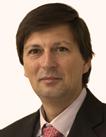 Dr. Fullana is the Director of the UNESCO Chair in Life Cycle and Climate Change and the Green Dot Packaging Life Cycle Observatory at the School of International Trade (ESCI-Universitat Pompeu Fabra). He is also the Spanish delegate for the the ISO 14000 environmental management standards and the CEN standards for sustainable construction and life cycle assessment (LCA) as applied to packaging. He is an editor for the International Journal of LCA (IJLCA). Dr. Fullana founded the Environmental Department in the consulting firm, Randa Group and was the Technical Director until December 2002. He acted as President of the LCA Direction Committee for SETAC Europe and a member of the Governing Council.
Dr. Fullana is the Director of the UNESCO Chair in Life Cycle and Climate Change and the Green Dot Packaging Life Cycle Observatory at the School of International Trade (ESCI-Universitat Pompeu Fabra). He is also the Spanish delegate for the the ISO 14000 environmental management standards and the CEN standards for sustainable construction and life cycle assessment (LCA) as applied to packaging. He is an editor for the International Journal of LCA (IJLCA). Dr. Fullana founded the Environmental Department in the consulting firm, Randa Group and was the Technical Director until December 2002. He acted as President of the LCA Direction Committee for SETAC Europe and a member of the Governing Council.
PROF. Shabbir H. Gheewala
Joint Graduate School of Energy and Environment (JGSEE), Thailand
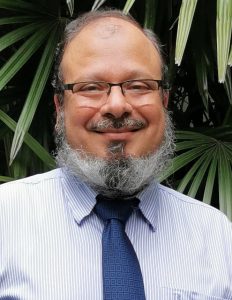 Shabbir H. Gheewala is a professor at the Joint Graduate School of Energy and Environment (JGSEE), Thailand where he teaches Life Cycle Assessment and heads the Life Cycle Sustainability Assessment Lab for about twenty years. He also holds an adjunct professorship at the University of North Carolina Chapel Hill, USA, and a Distinguished Adjunct Professor position at the Asian Institute of Technology, Thailand. His research focuses on sustainability assessment of energy systems; sustainability indicators; and certification issues in biofuels and agro-industry. He is a national expert on life cycle inventory as well as product carbon footprinting in Thailand and a steering committee member of the LCIA flagship of the UNEP/SETAC Life Cycle Initiative. He is on the editorial boards of the International Journal of Life Cycle Assessment, Sustainable Production and Consumption, Frontiers in Sustainability (Quantitative Sustainable Assessment) and the Journal of Sustainable Energy and Environment.
Shabbir H. Gheewala is a professor at the Joint Graduate School of Energy and Environment (JGSEE), Thailand where he teaches Life Cycle Assessment and heads the Life Cycle Sustainability Assessment Lab for about twenty years. He also holds an adjunct professorship at the University of North Carolina Chapel Hill, USA, and a Distinguished Adjunct Professor position at the Asian Institute of Technology, Thailand. His research focuses on sustainability assessment of energy systems; sustainability indicators; and certification issues in biofuels and agro-industry. He is a national expert on life cycle inventory as well as product carbon footprinting in Thailand and a steering committee member of the LCIA flagship of the UNEP/SETAC Life Cycle Initiative. He is on the editorial boards of the International Journal of Life Cycle Assessment, Sustainable Production and Consumption, Frontiers in Sustainability (Quantitative Sustainable Assessment) and the Journal of Sustainable Energy and Environment.
PROF. Michael Hauschild
Technical University of Denmark (DTU), Denmark
 Michael Hauschild, Ph.D, M.Sc.(Chem.Eng.) is a professor and Head of the section for Quantitative Sustainability Assessment at the Department of Systems, Production and Management of DTU. He has been responsible for the department’s Life Cycle Engineering research activities, teaching and professional training for more than a decade. He has been a member of the Editorial Board of The Int. J. of LCA since 1998, subject editor for LCIA of human and ecotoxic impacts 2008 and he has been subject editor on LCA for the J. of Industrial Ecology since 2010. In addition he is associate editor for CIRP J. of Manufacturing Science and Technology, member of editorial boards for the CIRP Annals – Manufacturing Technology, Int. J. of Sustainable Manufacture, and Int. J. of Sustainable Engineering. Furthermore, he is founding Chair of the Nordic Life Cycle Association.
Michael Hauschild, Ph.D, M.Sc.(Chem.Eng.) is a professor and Head of the section for Quantitative Sustainability Assessment at the Department of Systems, Production and Management of DTU. He has been responsible for the department’s Life Cycle Engineering research activities, teaching and professional training for more than a decade. He has been a member of the Editorial Board of The Int. J. of LCA since 1998, subject editor for LCIA of human and ecotoxic impacts 2008 and he has been subject editor on LCA for the J. of Industrial Ecology since 2010. In addition he is associate editor for CIRP J. of Manufacturing Science and Technology, member of editorial boards for the CIRP Annals – Manufacturing Technology, Int. J. of Sustainable Manufacture, and Int. J. of Sustainable Engineering. Furthermore, he is founding Chair of the Nordic Life Cycle Association.
DR. Sangwon Suh
University of California, Santa Barbara
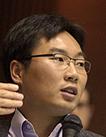 Sangwon Suh is an Assistant Professor in Corporate Environmental Management, Industrial Ecology, and LCA. He attained his PhD from Leiden University (Netherlands), and his MS and BS in Environmental Engineering at Ajou University (South Korea). Sangwon’s research interests include how materials and energy are extracted from nature, how they are transformed and used, and, finally, how they are discarded back to nature, which forms the metabolic structure of the coupled, human-nature complexity. In addition to making important theoretical and applied contributions in LCA, MFA, I/O and their combinations), he also is contributing to the policy and economics literature. Although he has covered a wide range of resources, several of his most recent contributions have focused on carbon and water, in part due to his growing interest in the issues associated with biofuels.
Sangwon Suh is an Assistant Professor in Corporate Environmental Management, Industrial Ecology, and LCA. He attained his PhD from Leiden University (Netherlands), and his MS and BS in Environmental Engineering at Ajou University (South Korea). Sangwon’s research interests include how materials and energy are extracted from nature, how they are transformed and used, and, finally, how they are discarded back to nature, which forms the metabolic structure of the coupled, human-nature complexity. In addition to making important theoretical and applied contributions in LCA, MFA, I/O and their combinations), he also is contributing to the policy and economics literature. Although he has covered a wide range of resources, several of his most recent contributions have focused on carbon and water, in part due to his growing interest in the issues associated with biofuels.
PROF. Cássia Maria Lie Ugaya
Federal University of Technology – Paraná (UTFPR), Brazil
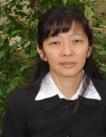 Cássia Maria Lie Ugaya is professor at the Federal University of Technology – Paraná (UTFPR) in Curitiba, Brazil where she leads the Life Cycle Sustainability Assessment Group. She is one of the Program Manager Office of the Capacity Building Flagship of the UNEP and SETAC Life Cycle Initiative and member of the ecoinvent Editorial Board. She is co-founder of the Ibero American Life Cycle Network and the Brazilian Life Cycle Association. She co-authored the publications Towards Life Cycle Sustainability Assessment: making informed choices of products and the Guidelines for Social Life Cycle Assessment. Cassia also organized the First Brazilian Life Cycle Management Conference and has been member of the Scientific Committee of the International Conference on Life Cycle Assessment (CILCA) since the first edition, in 2005.
Cássia Maria Lie Ugaya is professor at the Federal University of Technology – Paraná (UTFPR) in Curitiba, Brazil where she leads the Life Cycle Sustainability Assessment Group. She is one of the Program Manager Office of the Capacity Building Flagship of the UNEP and SETAC Life Cycle Initiative and member of the ecoinvent Editorial Board. She is co-founder of the Ibero American Life Cycle Network and the Brazilian Life Cycle Association. She co-authored the publications Towards Life Cycle Sustainability Assessment: making informed choices of products and the Guidelines for Social Life Cycle Assessment. Cassia also organized the First Brazilian Life Cycle Management Conference and has been member of the Scientific Committee of the International Conference on Life Cycle Assessment (CILCA) since the first edition, in 2005.
DR. Hongtao Wang
Sichuan University, China
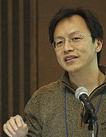 Hongtao Wang is an associate professor in the College of Architecture and Environment, Sichuan University, China. He has been leading the development of LCA software (eBalance) and LCA database (Chinese Life Cycle Database, CLCD), which were published in 2010. The research is also targeted at various LCA applications, such as environmental assessment of technology, Eco-design, Cleaner Production, Environmental Production Declaration and Product Carbon Footprint. He won the first place of UNEP-SETAC LCA Award (for developing and emerging countries) in 2009 for the Chinese LCA database research.
He was the Chinese contact person for technical support in the International Reference Life Cycle Data System (ILCD). In collaboration with UNEP-SETAC Life Cycle Initiative, he founded and organized the first two Chinese Conferences on Life Cycle Management (CLCM) in 2008 and 2009. He is also the co-chair of the capacity building working area in UNEP-SETAC Life Cycle Initiative since 2010.
Hongtao Wang is an associate professor in the College of Architecture and Environment, Sichuan University, China. He has been leading the development of LCA software (eBalance) and LCA database (Chinese Life Cycle Database, CLCD), which were published in 2010. The research is also targeted at various LCA applications, such as environmental assessment of technology, Eco-design, Cleaner Production, Environmental Production Declaration and Product Carbon Footprint. He won the first place of UNEP-SETAC LCA Award (for developing and emerging countries) in 2009 for the Chinese LCA database research.
He was the Chinese contact person for technical support in the International Reference Life Cycle Data System (ILCD). In collaboration with UNEP-SETAC Life Cycle Initiative, he founded and organized the first two Chinese Conferences on Life Cycle Management (CLCM) in 2008 and 2009. He is also the co-chair of the capacity building working area in UNEP-SETAC Life Cycle Initiative since 2010.
DR. Miguel Brandão
KTH – Stockholm, Sweden
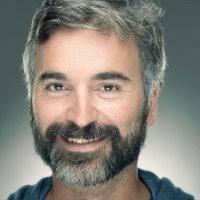 Miguel Brandão is Associate Professor in Industrial Ecology and Life Cycle Assessment at KTH, Stockholm. Over the last 10 years, he has taught and/or researched on Life Cycle Assessment (LCA) at a number of institutions across the world. His main interest is on the use of industrial ecology and life cycle approaches to support decision-making regarding our transition towards a sustainable society. His research has focused on the integrated sustainability assessment of land-use systems, with emphasis on their impact on climate change, resource depletion, ecosystem services and biodiversity. His focus is on land-use competition, particularly the consequential impacts of using land for food, feed, fuel, timber and carbon sinks on the economy, ecosystems and climate. Partly under the UNEP-SETAC Life Cycle Initiative, he developed methods for the impact assessment of land use in LCA and for quantifying indirect land-use change (iLUC). He also contributed to the estimation of the carbon footprints of a range of biofuels and biomass, which are currently applied in the European Commission’s Renewable Energies Directive.
Miguel Brandão is Associate Professor in Industrial Ecology and Life Cycle Assessment at KTH, Stockholm. Over the last 10 years, he has taught and/or researched on Life Cycle Assessment (LCA) at a number of institutions across the world. His main interest is on the use of industrial ecology and life cycle approaches to support decision-making regarding our transition towards a sustainable society. His research has focused on the integrated sustainability assessment of land-use systems, with emphasis on their impact on climate change, resource depletion, ecosystem services and biodiversity. His focus is on land-use competition, particularly the consequential impacts of using land for food, feed, fuel, timber and carbon sinks on the economy, ecosystems and climate. Partly under the UNEP-SETAC Life Cycle Initiative, he developed methods for the impact assessment of land use in LCA and for quantifying indirect land-use change (iLUC). He also contributed to the estimation of the carbon footprints of a range of biofuels and biomass, which are currently applied in the European Commission’s Renewable Energies Directive.
DR. Ralph K. Rosenbaum
IRTA Catalan Institute for Research and Technology in Agriculture, Spain
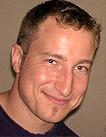 Ralph K. Rosenbaum completed his Ph.D. at the Swiss Federal Institute of Technology Lausanne in 2006. He completed his Diplomingenieur Environmental Engineering (the equivalent of an M.Sc.) at the Technical University of Berlin in 2003. Ralph is co-author of the consensus model for the evaluation of comparative toxicity USEtox and the LCIA methods IMPACT 2002+ and Impact World+. He is subject editor of the International Journal of Life Cycle Assessment on the theme of impacts of chemicals on human health and a member (partly chairman) of several expert groups and task forces of the UNEP-SETAC Life Cycle Initiative as well as advisory groups of SETAC. Ralph is currently heading the department for Agrosystems and Environment at IRTA, which consists of five research groups with a total of around 80 people: 1) Marine and Continental Waters, 2) Integral Management of Organic Waste, 3) Urban & peri-urban agriculture, 4) Sustainable Field Crops, and 5) Efficient Use of Water in Agriculture.
Ralph K. Rosenbaum completed his Ph.D. at the Swiss Federal Institute of Technology Lausanne in 2006. He completed his Diplomingenieur Environmental Engineering (the equivalent of an M.Sc.) at the Technical University of Berlin in 2003. Ralph is co-author of the consensus model for the evaluation of comparative toxicity USEtox and the LCIA methods IMPACT 2002+ and Impact World+. He is subject editor of the International Journal of Life Cycle Assessment on the theme of impacts of chemicals on human health and a member (partly chairman) of several expert groups and task forces of the UNEP-SETAC Life Cycle Initiative as well as advisory groups of SETAC. Ralph is currently heading the department for Agrosystems and Environment at IRTA, which consists of five research groups with a total of around 80 people: 1) Marine and Continental Waters, 2) Integral Management of Organic Waste, 3) Urban & peri-urban agriculture, 4) Sustainable Field Crops, and 5) Efficient Use of Water in Agriculture.
Link: http://www.irta.cat/en/